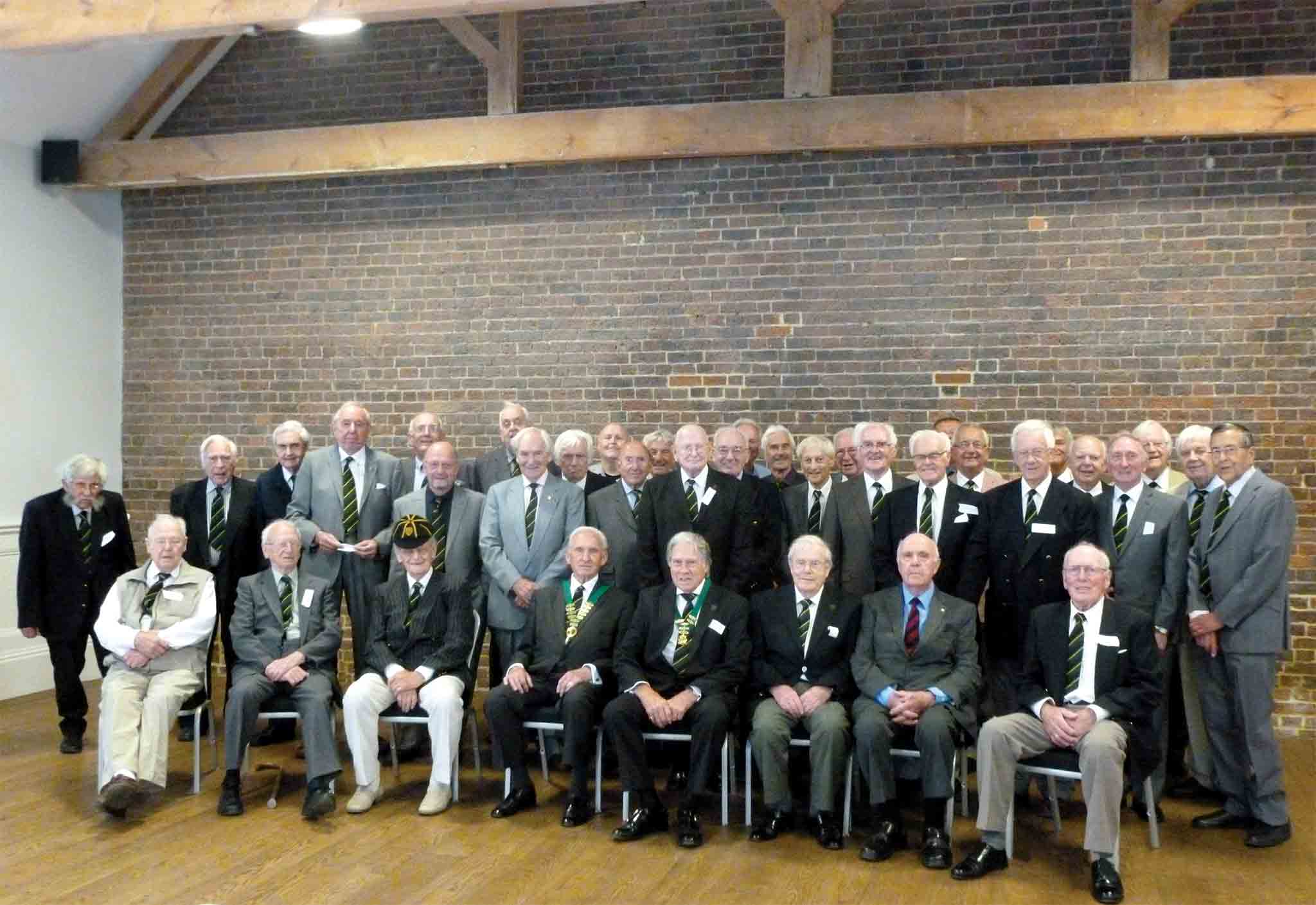Over half a century ago they were marching, two by two, down to the swimming pool on Monson Road with towels tucked under their left arms.
Last week they were sitting side by side in their old classroom, which now forms part of the One Warwick Park Hotel, celebrating the 36th year of their Old Boys Association.
These former pupils of King Charles’ School – which closed down 56 years ago – have managed to keep in regular contact since 1980, when the six founding members decided to reach out to fellow alumni.
They put an advert in the local paper and within a year, they had 385 members.
Today the group is still holding strong, with 78 old boys continuing the work of the association; focusing on supporting local schools and young people, especially in the area of sport.
Describing the motivation for the group, President Richard Fry told the Times: “Our ethos is simple: we want to do good.
“Our school was very, very strict, but we were brought up to respect others and to help our Âcommunity, and those principles live on through the association.
“Primarily, we help support local schools, especially in the area of sport, since sport was something King Charles’ school was really good at.”
The association commit to raising £900 each year, to fund an array of charitable donations.
Annually, these include bursaries for two Bennett Memorial students as well as a cash prize to help a young sportsperson pursue their passion, as part of the Tunbridge Well’s Love Where We Live awards.
Most recently, the group sponsored a swimming gala for local primary schools in January, a throwback to Mr Fry’s swimming-intensive school days.
“It was a well-known fact that no one could leave King Charles without being able to swim,” he said.
Air Raid Shelter
With the school having been established in 1698, the Old Boys Association includes ex-pupils from a range of eras – the oldest member, Phillip ÂWinter, is turning 100 this month.
Whilst not the most senior, Chairman Tony Whitehorn attended the school at a unique time – 1942-47 – experiencing the latter half of the ÂSecond World War as a pupil.
Describing his typical school week, he said: “Much of our time, during the war, was spent in the air raid centre on Cumberland Walk, which was actually located where the car park for the Âhotel is now.
“The rest of the time, when we weren’t playing sport, we would have over 100 boys crammed into this tiny school.”
Despite the dramatically different experiences for today’s schoolchildren, Mr Whitehorn said all the old boys feel a strong connection to their Âlocal schools.
Describing what has motivated the group for over a third of a century, he added: “It comes from a deep respect for the citizens of Tunbridge Wells and a desire to support our local schools.”
“It’s been a really long-standing collective effort.”
SWIMMING LEGACY
- Former pupil Mick Geer made history with the British Paralympic swimming team. Under his guidance they won more medals than ever before, during their victory at the World Championships in Argentina, 2002 (32 gold, 23 silver and 21 bronze). He was appointed MBE in 2007.
- Preceding Mick was Dennis Knight, former coach to Olympic swimmer Gaynor Foy and in 1974 was appointed the first professional coach for the Royal Tunbridge Wells Monson Road Swimming Club, after volunteering for 18 years. At 80 years old, Mr Knight completed an 80 lengths swimming challenge, around 1.25 miles, raising over £1500 for the Old Boys Association, among other causes.
RULES OF THUMB AND FINGERNAIL
- In 1892, the school asked for the boys’ opinion, via ballot, regarding the abolition of corporal punishment within schools. The result was surprising, with only 20 votes out of 120 being in favour of abolition.
There were some strict rules enforced by the school: - Handkerchiefs were compulsory, as boys wiping their noses on their sleeves was intolerable. Every day boys would have to put them on the desk for inspection.
- Fingernails were also inspected, and any boy who bit his nails was instructed to get his mother to buy one pennyworth of (very bitter) Quissin Chips at the chemist, soak them and dip his fingers in the concoction morning and night – until it cured them.








